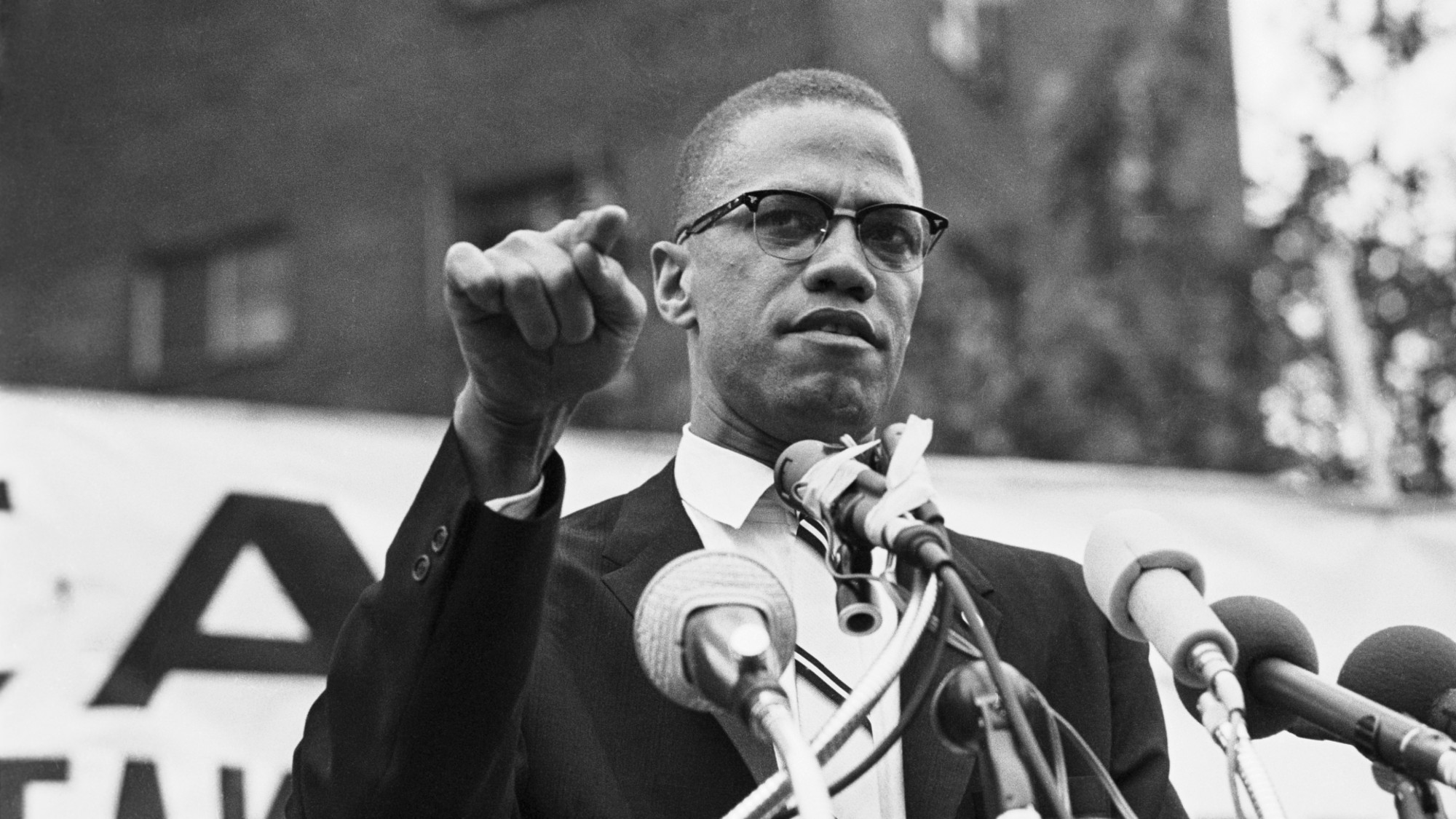- BlackVoter.Org
- Posts
- BlackVoter.Org
BlackVoter.Org


MSNBC's decision to cancel Joy Reid's "The ReidOut" after five years has ignited a fiery reaction across social media. Following the announcement, viewers expressed their shock and dismay, with many highlighting that Reid, along with other prominent anchors of color, was let go during a time of significant cultural relevance.
Joy herself took to social media to share her mixed emotions, emphasizing her gratitude for the platform she had to discuss crucial issues like Black Lives Matter and global injustices. Critics of MSNBC argue that the network is sidelining diverse voices under new leadership, sparking calls for advocates to build their own media platforms.
As Reid prepares for her farewell episode, the backlash reflects broader discussions around representation and the corporate media landscape, igniting fervor among supporters who believe in her mission.
A recent McLaughlin Poll reveals that a significant majority of Americans support President Trump’s ambitious tax-cut plan, aiming to provide much-needed relief to middle-class voters. Despite the challenges facing his administration, Trump continues to enjoy substantial approval ratings, with 51% of voters backing his policies, including a notable percentage among Democrats and minorities.
The poll highlights an encouraging trend for the GOP as Republicans maintain a lead in generic congressional ballots.
Interestingly, 57% of respondents prioritize tax cuts over other policy goals, indicating a strong desire for economic relief amid rising inflation.
As many Americans feel the pinch of the economy, pushing for these “big, beautiful” tax cuts could solidify Trump's influence and expand his voter base beyond traditional supporters. It’s clear that delivering on economic promises is crucial for the Republicans as they gear up for the 2026 midterm elections.

The rise of interracial marriage in America reflects a promising shift towards greater acceptance and unity across racial divides, with recent polls showing 94% approval—an astonishing leap from just 4% in 1958. This evolution in societal attitudes has its roots in the Civil Rights Movement and increased social interaction among different races.
Despite historical opposition, particularly from certain religious groups, American culture is moving toward a more integrated future, as evidenced by growing intermarriage rates and the increase in mixed-race births. The author emphasizes that these relationships represent hope and a path toward healing systemic racism, demonstrating that love can be a powerful force for change.
Interracial marriages serve not only as personal unions but also as symbols of collective progress, highlighting the potential for deeper social connections that can break down the lingering barriers of prejudice. Ultimately, while they’re not a panacea for systemic issues, they signify a crucial step forward in America’s journey toward equality and understanding.

In a stirring opinion piece, Barrington Salmon argues that Governor Ron DeSantis poses a significant threat to Black Floridians. He illustrates how DeSantis and his MAGA allies perpetuate a dangerous agenda steeped in racism, sexism, and ethnonationalism.
From undermining voting rights for formerly incarcerated individuals to rewriting the narrative of slavery as "beneficial," DeSantis's actions reflect a deep disdain for the Black community. The American Civil Liberties Union (ACLU) describes his governance as a calculated effort to control and subjugate Black lives in Florida.
With a focus on racial hierarchy, DeSantis is not only politically motivated but is actively participating in a broader movement aimed at reinforcing systemic discrimination. Salmon's piece serves as both a warning and a call to action, urging awareness of the ongoing struggles against racism and injustice that Black Floridians face under DeSantis’s regime.

Malcolm X was a pivotal figure in the 1960s civil rights movement, embodying the struggle for Black nationalism and independence in America. Born Malcolm Little in 1925, he faced trauma early on, leading him to a life of crime and eventual imprisonment, where he discovered the Nation of Islam.
Emerging as a charismatic leader, he championed Black pride, gaining notoriety for his fiery rhetoric and defiance against systemic oppression. However, his growing disillusionment with the Nation of Islam and its leader, Elijah Muhammad, set him on a divergent path after a pilgrimage to Mecca, where he embraced Sunni Islam.
Tragically, Malcolm X's life was cut short by assassination on February 21, 1965, amid escalating threats from the Nation. He remains a celebrated, yet complex, figure, revered for his unapologetic stance against racism and violence, contrasting sharply with contemporaries like Martin Luther King Jr.
His legacy endures through his influential writings and the ongoing discussions about race in America.

Frederick Prince, CEO of Omega Financial and Insurance Services, champions the significance of Black History Month by reflecting on his own journey and the broader impact of African Americans on U.S.
history. Celebrating 25 years in business, he emphasizes the importance of recognizing the contributions of Black culture in shaping the American landscape.
As a prominent leader in Kern County, Prince urges the community to focus on shared aspirations instead of past challenges, inspiring younger generations to pursue entrepreneurship with confidence. He highlights the obligation to uplift others and encourages storytelling to keep history alive.
Prince’s compelling message is clear: while the paths we’ve taken may vary, our collective destination is the key to building a brighter future together. As Black History Month concludes, his reflections serve as a powerful reminder of resilience, empowerment, and the importance of embracing shared goals.

In a surprising revelation, the U.S.
Agency for International Development (USAID) has allocated $21 million to enhance "voter turnout" in India, prompting a political stir. The announcement, highlighted by Donald Trump, raised eyebrows among Indian officials, with the Bharatiya Janata Party (BJP) questioning the motives behind such foreign financial involvement.
Critics fear this expenditure could undermine India's sovereignty and fuel unrest, a concern echoed by journalist Rajdeep Sardesai, who noted similar funding for neighboring Bangladesh. The U.
S., historically leveraging democracy as a foreign policy tool, may be creating political dependencies that jeopardize India's stability.
With former U.S.
State Department insiders raising alarms over the true intentions behind such aid, the Indian government has pledged to investigate further.
Social Media Erupts After MSNBC Fires Joy Reid: Outrage and Solidarity Ignite!